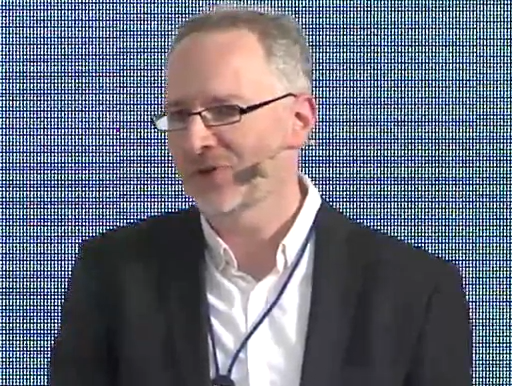
Journalists have “nothing to fear” from artificial intelligence, according to a leading media technology expert who has worked with Sky News.
Matt Eaton, general manager for Europe at machine learning technology company Gray Meta, has insisted that rather than threatening journalists’ jobs, AI can help them work more efficiently.
The “robot-generated” service localises stories using Natural Language Generation technology after journalists “identify, write and template” them using open data sets.
Eaton claimed that 50 per cent of a journalist’s time can currently be spent on “uncreative” tasks such as searching for content.
He said: “People’s expectations [of AI] range from the science fiction of it all and the feeling it can do anything, to cynicism.
“They fear it’s going to take away their jobs. But it’s very much an enhancement and a tool, like a typewriter.”
Gray Meta worked with Sky News last year for the wedding of Prince Harry and Meghan Markle.
Its facial recognition technology powered Sky’s Who’s Who app which automatically identified wedding guests in real time as they arrived for the ceremony in Windsor and provided facts about each person.
Hugh Westbrook, Sky’s senior product owner, revealed that the Sky newsroom is currently testing video transcription technology, which he said could “transform the working lives” of journalists.
The technology renders speech into text, saving journalists the effort of typing out quotes from video clips and news organisations the money of outsourcing this manual work.
Westbrook (pictured) said: “They [journalists] get the copy straight away and it speeds up the whole process. They know immediately what clips they can use with the transcription.
“The standard fear is a machine can do a job for them, but actually it means better quality time spent [working on a story].”
Eaton and Westbrook will demonstrate some potential uses of AI at the Broadcast Journalism Training Council’s annual spring conference on 9 May, which this year will explore the impact technology has on journalists at work.
BJTC chief executive Jon Godel said: “The sessions will provide a fascinating insight into cutting-edge uses of AI in the newsroom, as well as debating what kind of journalism will we have if talking to real people becomes a dying art.”
Godel recently told Press Gazette he fears a “gradual erosion” of real-life social skills, brought on by social media and smartphone use, could pose a “massive problem” for the news industry.
“If real people don’t talk to real people there will be no real journalism,” he said.
The BJTC accredits 59 journalism courses in the UK at 42 institutions and works with industry partners including ITN, Sky News, the BBC, AP, Channel 4, Reuters and Global.
Picture: Youtube/ENEX
Email pged@pressgazette.co.uk to point out mistakes, provide story tips or send in a letter for publication on our "Letters Page" blog
